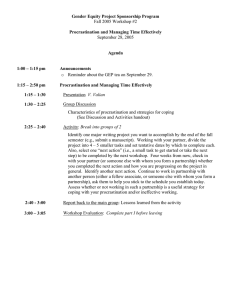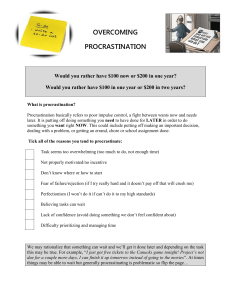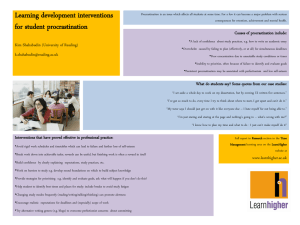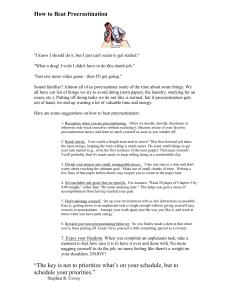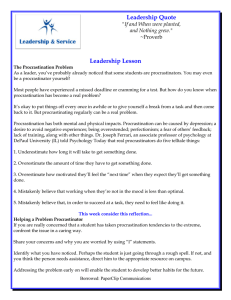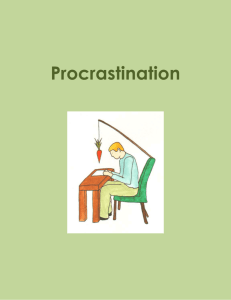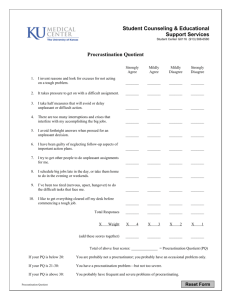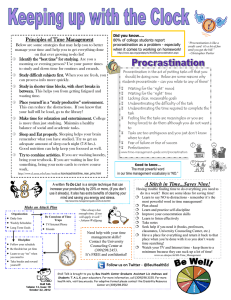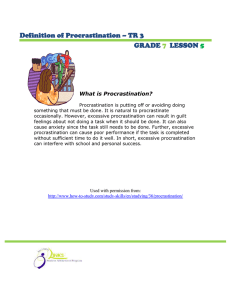DEFEATING PROCRASTINATION
advertisement
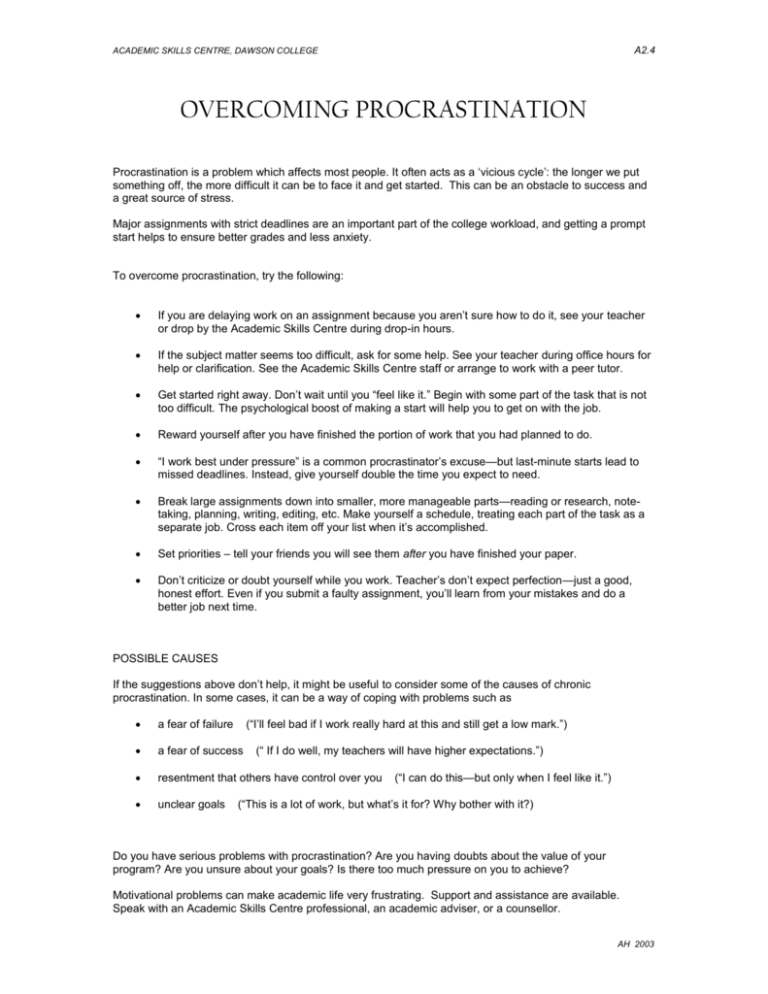
A2.4 ACADEMIC SKILLS CENTRE, DAWSON COLLEGE OVERCOMING PROCRASTINATION Procrastination is a problem which affects most people. It often acts as a ‘vicious cycle’: the longer we put something off, the more difficult it can be to face it and get started. This can be an obstacle to success and a great source of stress. Major assignments with strict deadlines are an important part of the college workload, and getting a prompt start helps to ensure better grades and less anxiety. To overcome procrastination, try the following: If you are delaying work on an assignment because you aren’t sure how to do it, see your teacher or drop by the Academic Skills Centre during drop-in hours. If the subject matter seems too difficult, ask for some help. See your teacher during office hours for help or clarification. See the Academic Skills Centre staff or arrange to work with a peer tutor. Get started right away. Don’t wait until you “feel like it.” Begin with some part of the task that is not too difficult. The psychological boost of making a start will help you to get on with the job. Reward yourself after you have finished the portion of work that you had planned to do. “I work best under pressure” is a common procrastinator’s excuse—but last-minute starts lead to missed deadlines. Instead, give yourself double the time you expect to need. Break large assignments down into smaller, more manageable parts—reading or research, notetaking, planning, writing, editing, etc. Make yourself a schedule, treating each part of the task as a separate job. Cross each item off your list when it’s accomplished. Set priorities – tell your friends you will see them after you have finished your paper. Don’t criticize or doubt yourself while you work. Teacher’s don’t expect perfection—just a good, honest effort. Even if you submit a faulty assignment, you’ll learn from your mistakes and do a better job next time. POSSIBLE CAUSES If the suggestions above don’t help, it might be useful to consider some of the causes of chronic procrastination. In some cases, it can be a way of coping with problems such as a fear of failure a fear of success resentment that others have control over you unclear goals (“I’ll feel bad if I work really hard at this and still get a low mark.”) (“ If I do well, my teachers will have higher expectations.”) (“I can do this—but only when I feel like it.”) (“This is a lot of work, but what’s it for? Why bother with it?) Do you have serious problems with procrastination? Are you having doubts about the value of your program? Are you unsure about your goals? Is there too much pressure on you to achieve? Motivational problems can make academic life very frustrating. Support and assistance are available. Speak with an Academic Skills Centre professional, an academic adviser, or a counsellor. AH 2003
